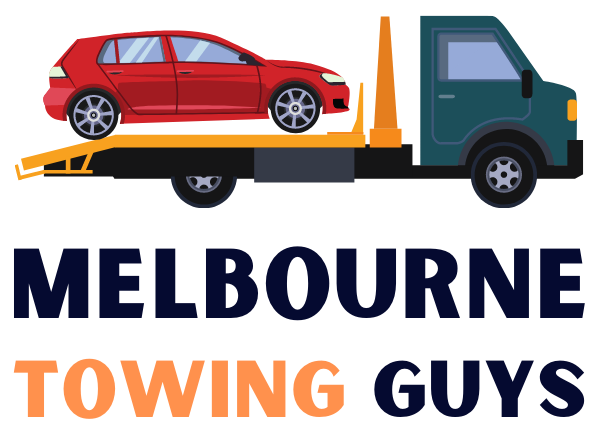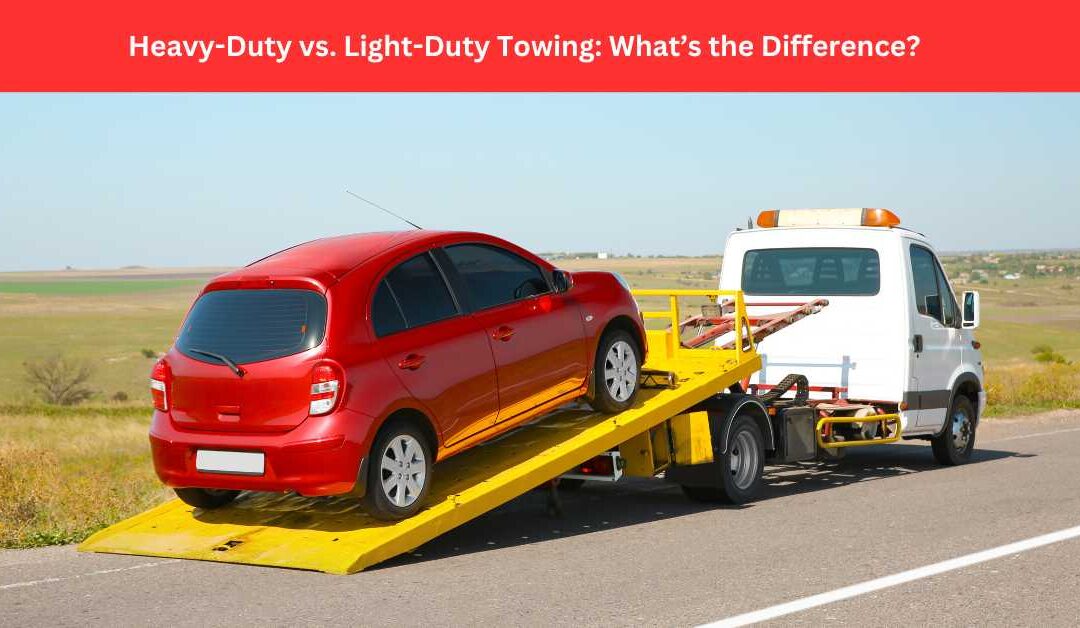Towing services are not one-size-fits-all; they vary based on the size, weight, and condition of the vehicle being towed. Two of the most common types are heavy-duty towing and light-duty towing. While both serve the purpose of moving vehicles, their equipment, techniques, and applications differ significantly. Here’s an in-depth comparison to help you understand the key differences.
1. Vehicle Types
- Light-Duty Towing:
Light-duty towing is designed for smaller, lighter vehicles such as:
- Sedans and compact cars.
- Motorcycles.
- SUVs and small pickup trucks.
- Vehicles in driveways, parking lots, or on the roadside.
- Heavy-Duty Towing:
Heavy-duty towing is tailored for larger and heavier vehicles, including:
- Buses and RVs.
- Semi-trucks and trailers.
- Construction vehicles and machinery.
- Large commercial vehicles like garbage trucks or fire trucks.
2. Towing Equipment Used
- Light-Duty Towing:
Light-duty towing typically uses smaller, more agile equipment, such as:
- Wheel-lift tow trucks.
- Flatbed tow trucks.
- These are ideal for transporting vehicles over short distances or recovering broken-down cars.
- Heavy-Duty Towing:
Heavy-duty towing requires robust machinery capable of handling extreme weights, such as:
- Rotator tow trucks with crane-like arms.
- Integrated tow trucks with reinforced axles and hydraulic systems.
- Special equipment like winches and booms for stabilizing and towing massive loads.
3. Load Capacity
- Light-Duty Towing:
Light-duty tow trucks generally handle vehicles weighing up to 10,000 pounds. They are ideal for everyday towing needs like breakdowns, minor accidents, or vehicle relocations.
- Heavy-Duty Towing:
Heavy-duty tow trucks are built to tow vehicles weighing over 26,000 pounds, making them essential for commercial and industrial applications.
4. Common Scenarios
- Light-Duty Towing:
- Flat tire assistance.
- Jump-starts or minor repairs.
- Towing disabled vehicles from public roads or parking lots.
- Heavy-Duty Towing:
- Recovering overturned semi-trucks.
- Relocating construction equipment to job sites.
- Transporting large vehicles after severe accidents.
5. Driver Expertise
- Light-Duty Towing:
Drivers typically require standard certifications and training in handling smaller vehicles. Familiarity with urban and suburban towing situations is crucial.
- Heavy-Duty Towing:
Heavy-duty towing demands specialized training and expertise in:
- Operating complex equipment.
- Navigating large loads safely.
- Understanding weight distribution and securing oversized vehicles.
6. Cost Differences
- Light-Duty Towing:
Services are generally more affordable due to less equipment usage, lower fuel costs, and shorter tow distances.
- Heavy-Duty Towing:
Heavy-duty towing is more expensive because of the specialized equipment, fuel consumption, and expertise required. Additionally, the complexity of the job often demands more time and resources.
7. Response Time
- Light-Duty Towing:
Light-duty tow trucks are more common and can reach most locations quickly, making them suitable for emergencies like breakdowns or minor accidents.
- Heavy-Duty Towing:
Heavy-duty tow trucks may take longer to arrive, especially in remote areas, due to their size and limited availability.
8. Legal and Regulatory Requirements
- Light-Duty Towing:
Light-duty towing typically requires compliance with local regulations, but the requirements are less stringent compared to heavy-duty operations.
- Heavy-Duty Towing:
Heavy-duty towing companies must adhere to strict regulations, including weight limits, load securing protocols, and specialized licenses for operators.
Choosing the Right Service
- Opt for light-duty towing if:
- You drive a standard car or motorcycle.
- You’re dealing with minor roadside issues.
- Choose heavy-duty towing if:
- You need to transport oversized or commercial vehicles.
- The job involves extreme weight or challenging recovery scenarios.
Final Thoughts
Understanding the difference between heavy-duty and light-duty towing ensures you select the right service for your needs. Whether it’s a compact car or a massive construction vehicle, the right towing service can provide the expertise and equipment required for a safe and efficient job.
If you are in Springvale Rd, Burwood East VIC 3151, Australia and looking for a tow truck service or roadside assistance service, this is the best way to visit us.
Melbourne Towing Guys
12 Esperance Rd
Mount Waverley VIC 3149
(03) 7037 7636


Recent Comments